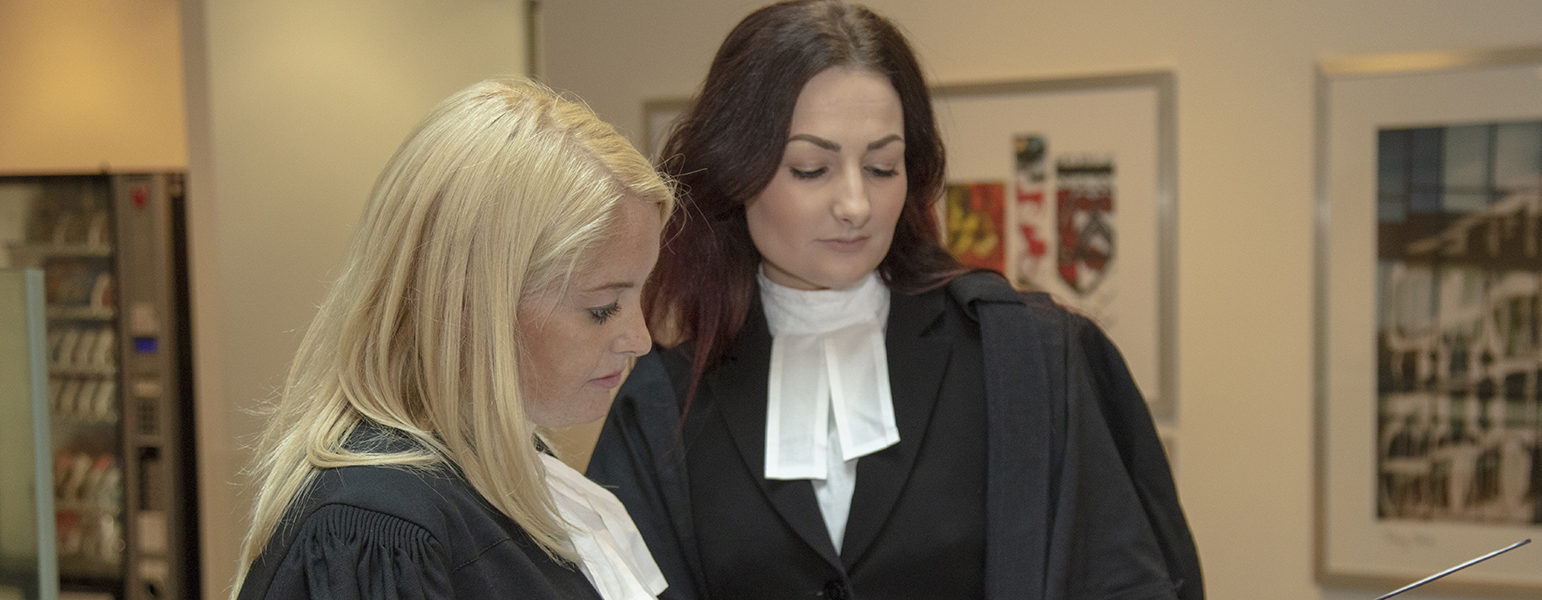The Hampel Method
The Inns and Circuits have for very many years been involved in helping pupils and young advocates develop their oral advocacy skills. For the last 25 years training has followed a structured method of teaching drawing on the systematic six-stage method devised by Professor George Hampel KC of the Australian Bar (‘The Hampel Method’).
The Hampel Method follows a six-step methodology to give a trainee advocate feedback on a specific area of his or her performance.
The stages are as follows:
Headnote
Identifying one particular aspect of the performance to be addressed.
Playback
Reproducing verbatim that identified aspect of the performance.
Reason
Explaining why this issue needs to be addressed.
Remedy
Explaining how to improve this aspect of the performance.
Demonstration
Demonstrating how to apply the remedy to the specific problem.
Replay
The trainee performs again, applying the remedy.
The method requires pupils and new practitioners to perform as advocates in a simulated courtroom environment, within a strict timeframe and supported by a student/trainer ratio of at least 6:2.
Advocacy trainers are experienced practitioners. They are trained in advocacy teaching and will observe trainee performances, then use this 6-step procedure to identify and remedy a particular problem with the performance. This incremental and structured approach helps to address the difficulties faced by a trainee seeking to absorb constructive criticism when under stress.
2018 Review of the Hampel Training Method
The demands for training have increased and more advanced and specialist courses are increasingly being introduced. Towards the end of 2016, the ICCA commissioned a working group comprised of practising trainers from each of the Inns with experience of teaching on courses for Pupils and New Practitioners as well as training new advocacy trainers to review the teaching method. The terms of reference were to:
- Review the working of “the Hampel Method” in advocacy courses for pupils;
- Review the methods of training used in advanced advocacy courses; and
- Make recommendations based on their review
In conducting their review, the working group, chaired by Stephen Lloyd and comprising David Dabbs (Lincoln’s Inn), HHJ Anthony Leonard KC (Inner Temple), Paul Stanley KC/Bernard Richmond KC (Middle Temple) and Christopher Russell (Gray’s Inn), reviewed written guidance to trainers produced by the Inns and Circuits as well as seeking input from those involved in the delivery of advocacy courses across the UK and internationally.
The working group concluded that the Hampel Method continues to be the bedrock of training for Pupils. For more advanced or specialist courses the Hampel Method remains a sound basis for training however greater flexibility may be necessary to accommodate the higher skill levels of trainees and to meet the objectives of such courses; it was noted that trainers on such programmes are, or should be, experienced teacher trainers who can be relied on to maintain the underlying principles of the Hampel Method even where some relaxation or adaptation is called for.
For further details on the strengths and limitations of the Hampel Method as well as information on it is implemented at Inns, Circuits and overseas training, read the full report.
In April 2019, the ICCA hosted an Advocacy Training Symposium where these issues were further explored.
Advanced Review and DVD Review Seminar
During a recent visit to the UK, Prof The Hon. George Hampel KC and Her Honour Judge Felicity Hampel SC conducted a seminar to assist trainers with both DVD Reviews, and Advanced Reviews using the new “Hampel 2” method, which has been trialled at various recent courses run by the Inns. The seminar provided an overview of the new method and provided an opportunity for discussion of issues and questions about its implementation, chaired by HHJ Anthony Leonard KC.
The best use of the DVD Review has been a topic of debate for some years, and this session took advantage of George’s presence in the UK to look at this subject more closely and with some practical demonstrations with New Practitioners who had recently taken part in the Inns’ courses.
Hampel on Hampel lecture
Professor George Hampel AM KC, along with Her Honour Judge Felicity Hampel SC provided a master class on advocacy for all accredited trainers from the Inns and Circuits. The session included a lecture on the Method and demonstrations on how it can be adopted for different levels.


